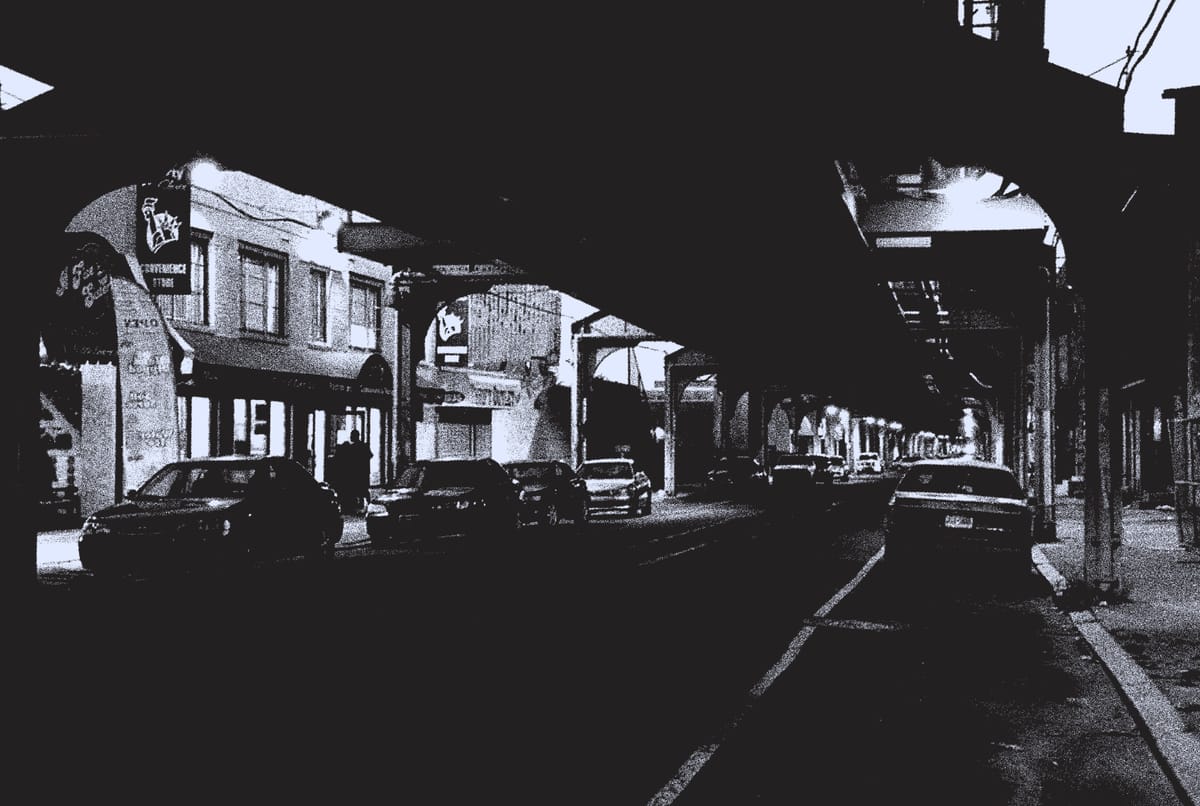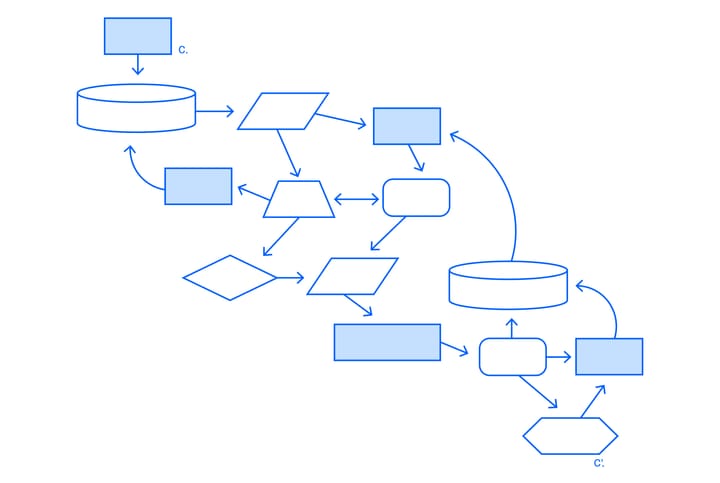Kensington, Philadelphia has a social problem. Harm reduction policies won’t fix it.
Even for Philadelphia, Kensington has a bad reputation. The neighborhood is home to some of the poorest census tracts in the country, with more than 65% of residents classified as poor or struggling. Not surprisingly, it is also exploding with gun violence. According to one analysis, 25 of the 57 most violent blocks in Philadelphia are in Kensington. But most shocking is the drug problem. Of the 1,413 overdose deaths in the city in 2022, about 20% were in Kensington, despite the neighborhood only accounting for about 2% of the city’s population.
Some who grew up in the area now call it “Zombieland,” a reference to the way drug users lean as they stumble down the avenue. But the moniker also works for the way the deindustrialized and depopulated neighborhood lingers on, undead, as social decay accelerates.
“Kenzo” was once the beating industrial heart of Philadelphia and a workshop of the world. But since the 1960s, just like everywhere else, manufacturing jobs have steadily fled. By one measure, nine in ten manufacturing jobs in Philadelphia have disappeared since its heyday, and Kensington, the most industrialized of all neighborhoods, was hit hardest. The area is once again a symbol of the age, now representing obscene inequality and social degradation.
Fixing the problems in Kensington won’t be easy or cheap. Unfortunately, one increasingly popular set of strategies—called “harm reduction”—has gained traction in part because it doesn’t cost much. Advocates for this suite of quick-fix policies counsel the decriminalization of drug use, and the establishment of safe injection sites to help alleviate the overdose crisis. But harm reduction strategies not only lack the needed ambition to address the scale of the problem, but they also embrace an ambivalence toward drug consumption and distribution—that is, an ambivalence toward drug markets—which makes them no solution at all, and instead, part of the problem.
Broke & Broken Cities
In an October 23, 2023 town hall, Democratic Mayoral candidate Cherelle Parker raised the possibility of bringing in the National Guard to help “clean up” Kenzo. Many, including her Republican rival David Oh, were shocked by the proposal. Parker has since walked back her commitment to the idea, but there is a certain unintended wisdom in the suggestion: it’s a recognition that City Hall just can’t fix this problem. Solving the crisis in Kensington requires addressing national drug policy, economic development, education, policing, housing, and so on. Regardless of the merits of her actual plan, Parker seems to grasp one crucial aspect of the problem: Philadelphia is just too broke to fix what’s broken.
Since the late 1960s, most American cities haven’t raised the tax revenue needed to effect positive changes, and in many cases they’ve been blocked from raising such revenue. In Philadelphia, for instance, the city is barred by the state legislature from raising the minimum wage and therefore cannot raise tax revenue by increasing residents’ income. Meanwhile, raising taxes on most existing residents, poor as they are, amounts to squeezing blood from a stone.
Without a meaningful way to raise revenue, the city has sought instead (like the rest of America) to cut taxes in a desperate attempt to lure new investment. Since at least the early 2000s, Philadelphia’s development plan has consisted of decades-long tax abatements, various forms of corporate tax “relief,” and the construction of “opportunity zones” that, incredibly, allow businesses to skirt virtually all city and state taxes. Perversely, the largest of these zones is located in the South Philadelphia Navy Yard, a former haven for public works, high-wages, and civic pride.
Tax breaks and public subsidies have financed towering skyscrapers, medical centers, and the like, and the businesses that have benefitted from all this have grown quite profitable. The corridors along which they now sit are lush with little shops, restaurants, green space, and all the things that make a city pleasant. But jobs in media and communications, or those on tech, university, and medical campuses, were never intended for the city’s stubborn, post-industrial population. So although they shouldered the tax burden for building the New Economy, the ordinary residents of neighborhoods like Kensington are left with no reward. And if the city were to insist that profitable giants like Comcast or Aramark pay something back to their working-class benefactors, these firms would simply threaten to leave, making the tax bind all the worse.
Constrained by legal limitations, and throttled by business interests, the city’s budget is choked twice over. At the same time, the scale of the crisis in Kensington requires big investments. Given this, any real plan will need to think bigger than City Hall and so-called “community” efforts—an insulting euphemism in a neighborhood where all normal measures of community have been destroyed.
Yet with no resources coming from the federal government, local advocates have gone hunting for cheaper, more immediate solutions.
A Portuguese Reduction
In 2020, the Philadelphia Inquirer introduced its readers to the “Portuguese Model” for handling the drug crisis. Portugal, so the story went, simply decriminalized drugs and encouraged safe drug use. This forward-thinking and forgiving policy was rewarded: overdoses plummeted and addiction decreased. Best of all, we could replicate the model right here without breaking the bank.
The truth, unsurprisingly, was more complicated. Portugal tried the hands-off model imagined by American advocates, and the results were bad. Addicts simply took clean needles from safe consumption sites and went on with their lives, never seeking treatment, never leaving encampments. It wasn’t until Portuguese officials started arresting drug dealers and those using in public—along with making rehab compulsory—that they began to see positive effects. At its best, the system was effective because it consisted of a coordinated national social policy and the compulsory rehabilitation of users, all sponsored by the public purse. Hardly a laissez-faire approach.
Philadelphia, of course, can’t afford to effectively emulate that model. Adopting the “public health approach” to addiction wouldn’t mean much in a city that can’t boast even a single public hospital. Undaunted, progressives here called for following the Portuguese example, albeit in a much less ambitious form.
By throwing out all the expensive stuff, and especially the commitment to compulsory addiction treatment, advocates have arrived at the lowest common denominator between the Portuguese Model and what is politically and economically feasible for the City of Philadelphia. Their key proposals amount to an emaciated harm reduction strategy: decriminalize drugs and establish supervised safe injection sites. If fully implemented, the result could be socially ruinous.
The de facto decriminalization of drugs is already well underway. According to the Inquirer, “[a]rrests for drug possession have declined precipitously: year to date, 739 have been arrested on charges of drug possession [in 2023]. At the same point in 2019, the number was more than 5,300.” That's an 86% decrease in drug related arrests. It’s hard to know how much of this is due to a new policy and how much is the sad result of police department staff shortages—itself the consequence of budget constraints.
Unsurprisingly, lax enforcement has had no positive effect on overdose or addiction rates. To address this, advocates argue, safe injection sites are needed. Yet Philadelphia City Council has routinely rejected the idea, despite the insistence of outgoing Mayor Jim Kenney. This has baffled and infuriated progressives. The evidence, they will tell you, shows that such strategies decrease fatal overdose rates. What they’re a little less keen to tell you is that there is no evidence these strategies reduce addiction.
Mayor-elect Parker summarized the majority view well: “Nobody was talking about a safe crack house in our community back in the ‘80s.” To opponents, the idea of “safe” drug use is absurd and morally indefensible. If taxpayers make drug use safe, what incentive is there for addicts to get clean? Harm-reduction advocates respond that this is making the Perfect the enemy of the Good: hand wringing about drug use shouldn’t overshadow the lifesaving effects of safe injection sites. After all, a person can’t get clean if they’re dead. Touché.
The urgency and immediacy of saving lives lends a moral certitude to appeals for safe injection sites. But it also helps obscure the stakes of the debate. The insistence on saving lives, right now, makes thinking about the future difficult. But if we ended up here because of bad drug policies in the past, it’s important for us to take the future implications of our strategy seriously.
Checking In On the Future
What does the future look like if drug use is relatively safe and broadly legal? Portugal can provide us a glimpse. According to the Washington Post:
Overdose rates have hit 12-year highs and almost doubled in Lisbon from 2019 to 2023. Sewage samples in Lisbon show cocaine and ketamine detection is now among the highest in Europe, with elevated weekend rates suggesting party-heavy usage. In Porto, the collection of drug-related debris from city streets surged 24 percent between 2021 and 2022, with this year on track to far outpace the last. Crime—including robbery in public spaces—spiked 14 percent from 2021 to 2022, a rise police blame partly on increased drug use.
To be clear, the Portuguese Model was effective, and leftwing defenders maintain that “decriminalization is not to blame” for the recent reversals: “the real problem is lack of state support for addiction recovery.” That may be, but it neglects to appreciate the tension—if not contradiction—between establishing safe drug use as a right to be respected, and treating addiction as a disease to be eliminated. Indeed, ambivalence toward drug use played a major role in the undoing of Portugal's progress. So what went wrong?
Following decriminalization, the population of drug users grew dramatically. According to one survey, only 7.8% of adults admitted to using illicit drugs in 2001, while today that number is 12.8%—a 64% increase. As the population of users grew, so too did the population of addicts, putting increased strain on treatment services. In other words, while one arm of the government worked to treat the addicted, another handed out needles and advised safe consumption.
There may be a world in which the individual right to use drugs can live happily alongside the social duty to eradicate addiction, but in Portugal, as treatment budgets ballooned to meet increased demand, the tension proved too difficult to manage. When push came to shove, in 2012, the Portuguese government slashed funding for public rehab, while offloading needle exchange and safe consumption programs to nonprofits. The results speak for themselves.
Alongside the increase in overdoses, Portugal witnessed a parallel rise in indifference. Police have given up writing citations for drug-related offenses. Instead of counseling the abolition of addiction, some NGOs and nonprofits refer to the users’ right to a lifetime of drug use. The Post recounts the story of an addict whose veins were so badly abused in his hands that, under the supervision of a nonplussed nurse, he injected drugs directly into his neck. Here the right to use has swallowed the duty to treat. João Goulão, the architect of the Portuguese Model, now claims that it “no longer serves as an example to anyone.” In fact, he once warned that “If you decriminalize and do nothing else, things will get worse.”
As if to prove Goulão’s point, experiments with harm reduction in the US have not fared well. In 2021 Oregon approved a decriminalization initiative through Ballot Measure 110. The Measure forbids “mandating abstinence,” and establishes public rehab services funded by tax revenue from marijuana sales. Of course, the public health side of the equation has not yet fully come together, but the results of decriminalization have been immediate. “In the two years after the law took effect,” reports The Atlantic, “the number of annual overdoses in the state rose by 61 percent, compared with a 13 percent increase nationwide.” Politically, the backlash has begun: even ultra-liberal Portland is now trying to recriminalize drugs in response to the growth of open-air drug markets. The unpopularity of Measure 110 even threatens the realization of public rehab services. In light of this we could modify Goulão’s warning: if you decriminalize first and do nothing else, things will get worse.
Libertarians at the Cato Institute, who have long supported harm-reduction efforts as part of their commitment to broader drug liberalization, would shrug at these seeming failures. For them, the “right to use” is a good in itself, regardless of the outcomes. But for those who see addiction as the enemy, these examples ought to be troubling. Respecting the “right to use” seems only to lead to more addiction. And if the drug-addicted population increases rapidly, even a well-funded public health agency will find itself overwhelmed. Then, the rise in crime and disorder will strain the patience of even the most progressive polity, making establishing public rehab that much more difficult.
In the rush toward reducing harm, we may be making the present the enemy of the future.
Market Madness
Walking around Kensington, one certainly sees the drug problem: it’s unavoidable. But so too (even moreso?) is the much more harrowing feeling of social collapse. And the total incapacity for liberalism to find a fix for what’s broken.
Kensington sits just west of booming Fishtown. Its proximity to wealth is in part what makes the neighborhood seem so apocalyptic. Tent cities spring up next to million dollar luxury condos. Addicts mumble incoherently past new coffee shops and buzzy restaurants. It’s a disorienting picture, like a glimpse of society after The Fall. Yet, zombified Kensington is also, perversely, a particular vision of urban advance. The neighborhood has been pimped as “up-and-coming” for the past ten years or so. And somehow, miraculously, that is true.
While the drugs surely scare off some potential homebuyers, they make for a useful “push factor” to get older working-class residents out of their homes fast and cheap. Developers can then flip the properties, or build from scratch, while they wait for the glow of Fishtown’s boom to brighten the streets. In the meantime, new apartments are advertised to students and recent college graduates. Young renters are a convenient mix of fearless and naïve; they act as the transitory population in the neighborhood’s inevitable transformation—a temporary buffer zone for affluent future residents.
Between the dealers and the developers, Kensington is a neighborhood ravaged by a nightmare of commerce—a funhouse mirror-image of the tax-free “opportunity zones” the city champions. According to one drug dealer interviewed by the Inquirer, “[t]his is one of the few places in America where you can wake up Monday flat broke and on Tuesday you can have $10,000 in your pocket.” Developers can make even more and just as quickly. And that’s what is so confounding about Kensington’s problems. It is not the lack of economic activity or investment that plagues the neighborhood. Instead, it is the lack of any social counterweight to almighty market forces.
Liberalization, broadly conceived, is to blame for so much of Kensington’s woes. First, there was the liberalization of trade, which facilitated the offshoring of local factories; then the liberalization of pharmaceutical laws, which opened the floodgates of opioids and other drugs, followed by the great liberalization of credit, which allowed inflows of intensive, speculative, real-estate development. Over the decades the neighborhood has become more and more exposed to market forces, with more and more of social life determined by market rules.
And what is the liberal solution to all this market saturation? More liberalization. Needle-exchange programs and safe-injection sites will do little to limit the distribution of drugs or combat addiction. And they will also do nothing to smooth the immense and growing inequality in the area.
As Benjamin Y. Fong has written, America has a psychotic relationship with drugs, an outgrowth of our schizoid relationship with liberalism. A Puritanical prohibition gave way, rather easily, to a permissive emphasis on personal liberty. To be sure, a return to jack-booted prohibitionism won’t do much to solve the problem. Carting addicts off to rot in crumbling, violent, dirty jails is not only ineffective, it is immoral. But is it any less cruel to offer an addict a clean needle, and little else, so that he might avoid overdose while wasting away on the street?
The problem, of course, is that nothing can really be solved if we do not address, or at least raise, the social question by abandoning ambivalence, and opting for more ambitious solutions.
Ambivalence or Ambition
During the pandemic, an urgent humanitarian rhetoric was employed to justify all sorts of public health policies, ones that in hindsight look close to disastrous. Ordinary skepticism was suspended in favor of what appeared, at the time, to be the ultimate imperative: saving lives.
The Italian philosopher Giorgio Agamben criticized this attitude for reducing all social life to “bare life”—that is, to its minimum biological functions—and then elevating those bare minimums to the lofty status of political ultimatum. Behind the humanitarian rhetoric, Agamben suggested, lies the nihilistic conclusion that the job of government is merely to be a custodian of physical survival. When it comes to the drug problem, is the role of the state nothing more than to provide non-judgmental nurses to search for the last veins plump enough to “safely” inject heroin? Follow this train to the station, and you begin to wonder: what’s the point in “reducing harm” if we have no intention of, nor belief in, enriching life?
What really disturbs so many about Kensington is the sight of countless not-yet-dead bodies lumbering around, displaying their full range of biological functions on the street. It is among the most dehumanizing spectacles to witness. When death doesn’t prevail in Kensington, bare life does. Hiding behind similarly urgent humanitarian pleas, harm-reduction advocates have cast their opponents as hard-hearted and urged their policies as an immediate response to the overdose crisis. Yet whatever short-term benefits these policies may have, they do nothing to attenuate the social causes of so much drug-induced misery.
Instead, while retreating from the social question, we repackage the preservation of bare life as progress, and say that there is nothing we can do to make the wretched stand taller, to end their stooping, hunching, and humiliation. We ought not to interfere, and we certainly shouldn’t judge. We should surrender to the market, respect the users’ choices, the dealers’ contracts, and the developers’ plans for a brighter future.
This is no solution. Further, to the extent that the political commitment to harm reduction limits our ambition, it will also prevent us from tackling the social causes of addiction.
Given that, is the idea of sending in the National Guard so crazy? Politically, the military remains the one arm of the state that can win almost limitless funding for audacious projects. In 2016, the philosopher Fredric Jameson argued that socialism might come about more easily through the universalization of the military, rather than through its dismantling. If everyone was a soldier, Jameson argued, Americans would be more reluctant to deploy, and they would qualify for generous, state-sponsored benefits like the single-payer VA hospital system. A win win.
I joked with friends that sending in the Guard might work if the plan was to recruit addicts, provide them with rehab, training, a job, housing, a pension, and a purpose. That is, if the plan was to restore social order through social means. Of course, such an ambitious rethinking of the role of the State in social crises is not likely forthcoming. But the thought experiment should remind us that we ought to be careful about solutions that seem too easy, too cheap, and too good to be true. They usually are.
■
Dustin “Dino” Guastella is a research associate at the Center for Working Class Politics and the Director of Operations for Teamsters Local 623 in Philadelphia.




